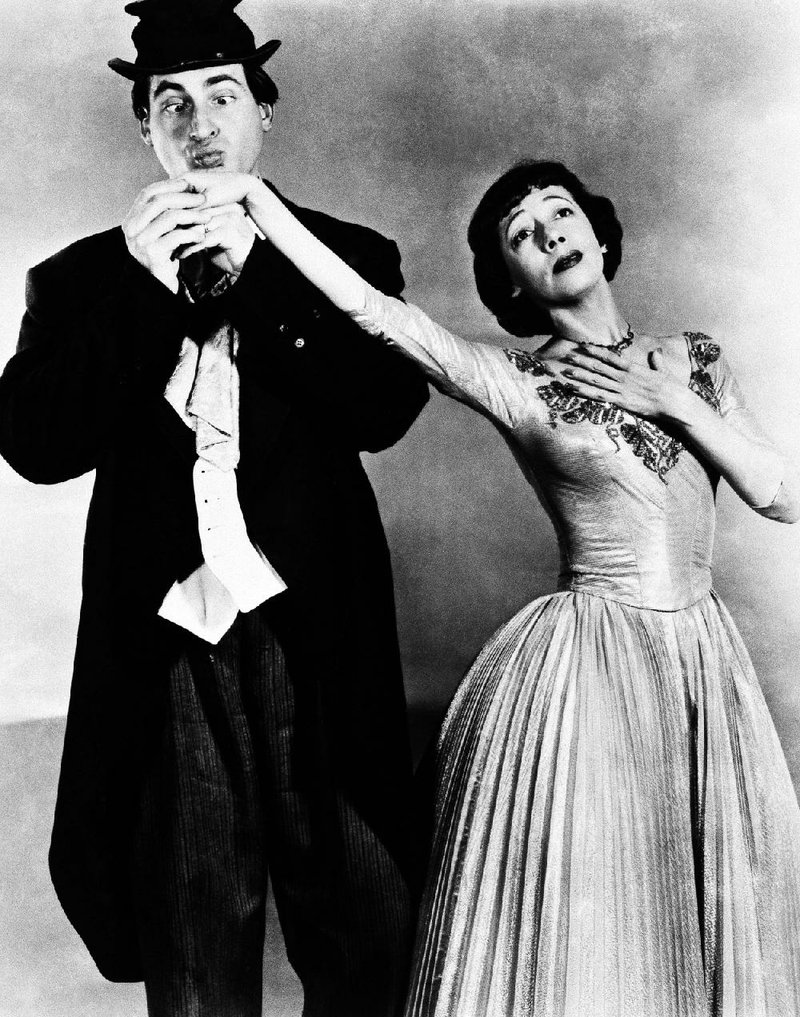LOS ANGELES - Sid Caesar, the pioneer of TV comedy who paired with Imogene Coca in sketches that became classics and who inspired a generation of famous writers, died Wednesday. He was 91.
Family spokesman Eddy Friedfeld said Caesar, who also played Coach Calhoun in the 1978 movie Grease, died at his home in the Los Angeles area after a brief illness.
Carl Reiner, who worked as a writer-performer with Caesar on his breakthrough Your Show of Shows sketch program, said Caesar had an ability to “connect with an audience and make them roar with laughter.”
“Sid Caesar set the template for everybody,” Reiner told KNX-AM in Los Angeles. “He was without a doubt, inarguably, the greatest sketch comedian-monologist that television ever produced. He could ad-lib. He could do anything that was necessary to make an audience laugh.”
In his two biggest shows, NBC’s Your Show of Shows, 1950-54, and Caesar’s Hour, 1954-57, Caesar displayed skill in pantomime, satire, mimicry, dialect and sketch comedy. And he gathered a stable of young writers who went on to worldwide fame in their own right - including Neil Simon,Woody Allen, Mel Brooks and Larry Gelbart.
“The one great star that television created and who created television was Sid Caesar,” said now-deceased critic Joel Siegel on the TV documentary Hail Sid Caesar! The Golden Age Of Comedy, which first aired in 2001.
While best known for his TV shows, which have been revived on DVD in recent years, he also had success on Broadway and occasional film appearances, notably in It’s a Mad Mad Mad Mad World.
Caesar was tall and powerful, with a clown’s loose limbs and rubbery face, but he never went in for clowning or jokes. He insisted that the best laughs come from the everyday.
“Real life is the true comedy,” he said in 2001. “Then everybody knows what you’re talking about.” Caesar brought observational comedy to TV before the term, or such latter-day practitioners as Jerry Seinfeld, were even born.
He played an unsuspecting moviegoer getting caught between feuding lovers in a theater. He dined at a health food restaurant, where the first course was the bouquet in the vase on the table. He impersonated a gumball machine, a baby and a ludicrously overemotional guest on a parody of This Is Your Life.
Some compared him to Charlie Chaplin for his success at combining humor with touches of pathos.
Caesar performed with such talents as Howard Morris and Nanette Fabray, but his most celebrated collaborator was the brilliant Coca, his Your Show of Shows co-star.
“The chemistry was perfect, that’s all,” Coca, who died in 2001, once said. “We never went out together; we never see each other socially. But for years we worked together from 10 in the morning to 6 or 7 at night every day of the week. What made it work is that we found the same things funny.”
Caesar was born in 1922 in Yonkers, N.Y., the third son of an Austrian-born restaurant owner and his Russian-born wife. His first dream was to become a musician, and he played saxophone in bands in his teens.
His talent for comedy was discovered when he was serving in the Coast Guard during World War II and got a part in a Coast Guard musical, Tars and Spars.
He also appeared in the movie version. That led to a few other film roles, nightclub engagements, and then his breakthrough hit, a 1948 Broadway revue called Make Mine Manhattan.
Your Show of Shows, which debuted in February 1950, and Caesar’s Hour three years later reached as many as 60 million viewers weekly and earned its star $1 million annually at a time when $5, he later noted, bought a steak dinner for two.
Increasing ratings competition from Lawrence Welk’s variety show put Caesar’s Hour off the air in 1957.
In 1962, Caesar starred on Broadway in the musical Little Me, written by Simon, and was nominated for a Tony. He played seven different roles, from a comically perfect young man to a tyrannical movie director to a prince of an impoverished European kingdom.
He was one of the galaxy of stars who raced to find buried treasure in the 1963 comic epic It’s a Mad Mad Mad Mad World, and in 1976 he put his pantomime skills to work in Brooks’ Silent Movie.
But he later looked back on those years as painful ones. He said he beat a severe, decades-long barbiturate and alcohol habit in 1978, when he was so low he considered suicide.
“I had to come to terms with myself. ‘Yes or no? Do you want to live or die?’” Deciding that he wanted to live, he recalled, was “the first step on a long journey.” Information for this article was contributed by Frazier Moore of The Associated Press.
Front Section, Pages 2 on 02/13/2014
